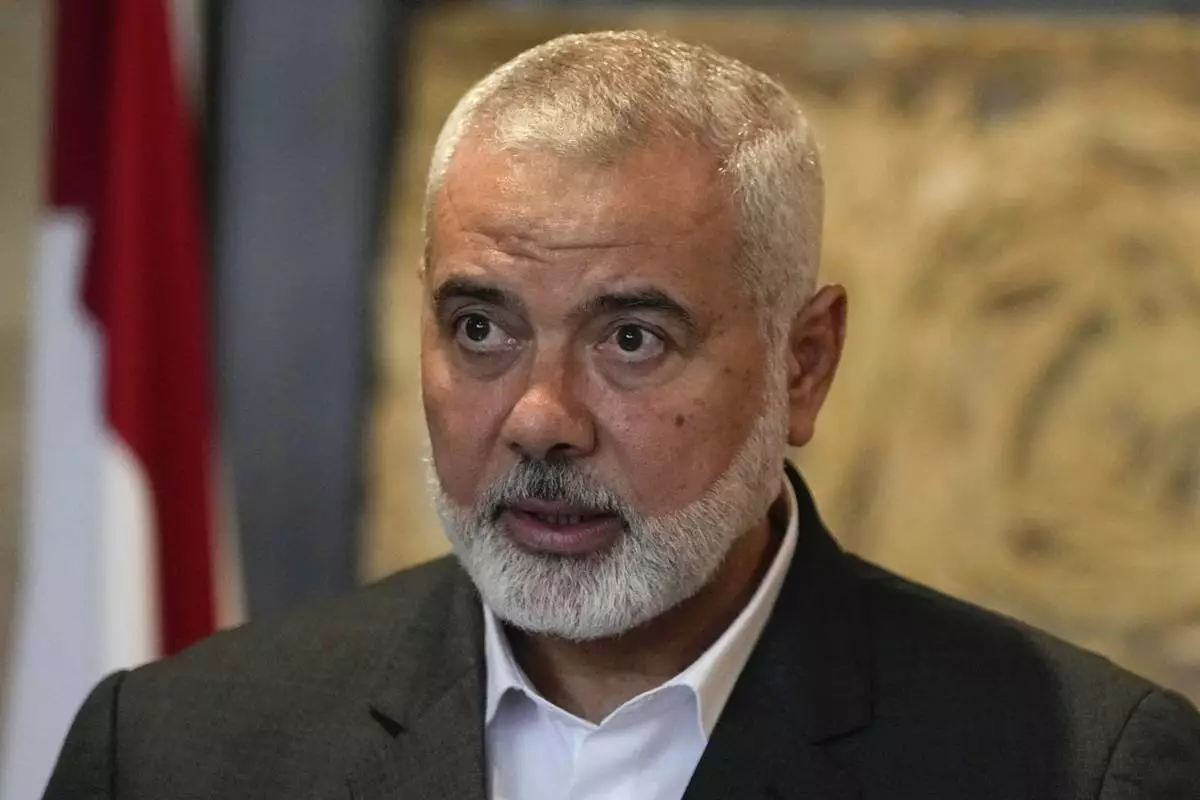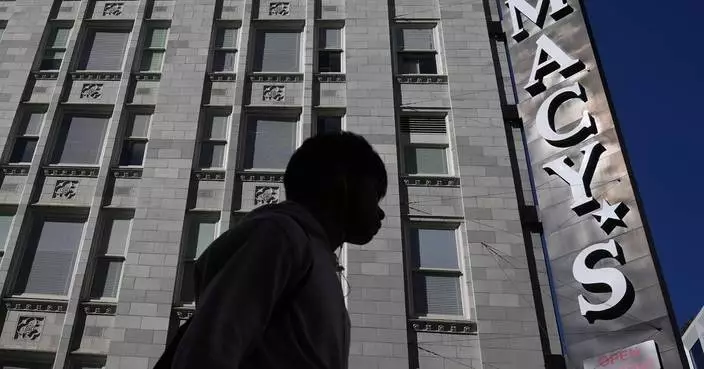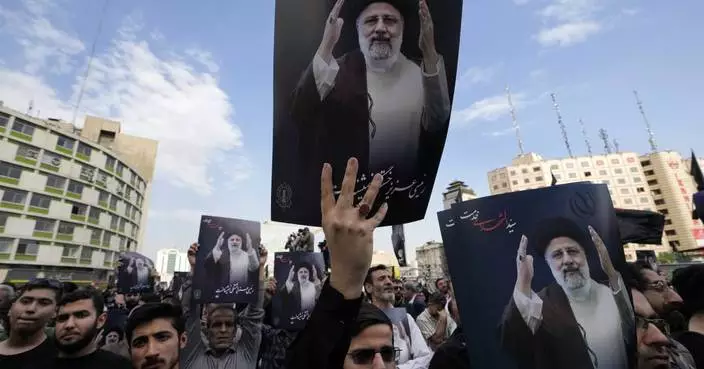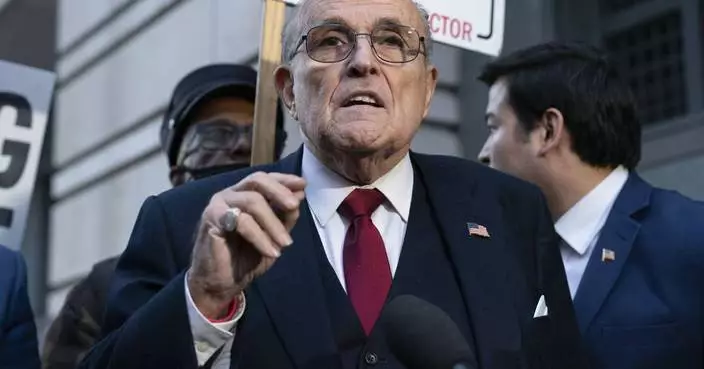SAN FRANCISCO (AP) — The U.S. Justice Department's double-barreled antitrust attack on Google's dominant search and Apple's trendsetting iPhone is reviving memories of the epic battle that hobbled Microsoft before it roared back to yet again become the world's most valuable company.
The parallels to the Justice Department's landmark antitrust case in 1998 could provide a window into the potential breakthroughs that could be unleashed if regulators succeed in their attempts to crack down on Google and Apple.
Federal lawyers have even gone as far as to assert Google and Apple may never have created so many popular products or become as powerful as they are now if Microsoft hadn't been reined in a quarter century ago.
In closing arguments of a Washington, D.C., trial that began last September, regulators Thursday will apply the finishing touches to a case alleging Google has turned its search engine into an illegal monopoly that stifles competition and innovation. The Apple case, which was only filed a month ago, is still years away from its resolution.
Although regulators have lodged separate complaints against Google and Apple, the two cases are shadowed by Microsoft's legal saga that began when both those were mere specks on the technology landscape.
When they went after Google in October 2020, regulators compared the lucrative deals that the company cut with Apple to lock its search engine into the iPhone and Safari web browser to the same tactics Microsoft deployed in its personal computer software to block competition.
And in the antitrust lawsuits that they filed against Apple last month, the Justice Department pointed back to complaints that company co-founder Steve Jobs had raised in 1998 against Microsoft's “dirty tactics” while urging regulators to take steps to force the PC software maker “to play fair.”
And that is what the Justice Department did in an antitrust case against Microsoft that caused massive distractions that opened the door for Google's search engine to become the internet's main gateway. It also culminated in a series of concessions that paved the way for Apple to extend the reach of its iTunes music store that increased the popularity of the iPod that spawned the iPhone.
The Microsoft case "created new opportunities for innovation in areas that would become critical to the success of Apple’s consumer devices and the company itself," the Justice Department crowed in the lawsuit that casts the iPhone as an illegal monopoly.
After years of mostly fruitless attempts to compete against Google's search engine and the iPhone under the leadership of Steve Ballmer, Microsoft began to regain its stride when Satya Nadella became CEO in 2014.
Earlier this year, Microsoft's market value hit $3 trillion for the first time, surpassing Apple as the world's most valuable company while taking the early lead in artificial intelligence technology that's expected to reshape the world.
It's an odd juxtaposition that has thrust regulators into battling two companies they helped create when they caged a colossus now angling to seize the mantle in technology's next frontier.
But it's also a tableau that antitrust experts cite as evidence that the system is working to unlock more robust competition that hatches innovations. And then those breakthroughs sometimes serve as the building blocks for new monopolies that must eventually be challenged by regulators, even as fallen empires like Microsoft can still find ways to reinvent themselves.
“It's not about an agenda about trying to pursue and destroy companies, it's about trying to restore competition in a market,” said Rebecca Haw Allensworth, a Vanderbilt University law professor who focuses on antitrust law issues. “What has happened with the Microsoft case is a success story that can also provide a blueprint for Apple and Google when people ask why is America trying to destroy its most successful companies? Microsoft has done great after it had a major antitrust claim against it.”
The Justice Department's landmark case against Microsoft was not the first time an antitrust lawsuit turned into a springboard for other companies to emerge as dominant forces that eventually need to be corralled, too.
For instance, separate antitrust lawsuits filed against IBM in 1969 and AT&T in 1974 helped pave the way for Microsoft and Apple to launch the personal computer revolution that subsequently spawned the internet boom that was followed by the smartphone explosion.
Those are the kinds of innovations that have fueled economic growth and society-shifting products that might not have happened had antitrust regulators stayed on the sidelines while IBM and AT&T continued to exploit their respective monopolies, Yale University economics professor Fiona Scott Morton said.
“When you innovate successfully, you can grow like crazy but then it's 20 years later and it's hard to keep growing like you were,” said Scott Morton, who once was chief economist in the Justice Department's antitrust division. "So instead of just relying on innovation, you realize, ‘Hey we have a lot of market power, we could use that to raise profits.’
“It's just very natural that's what happens repeatedly and regulators have to say, ‘No, that part isn’t allowed, you have to compete on the merits.' And oftentimes when you succeed in forcing more competition, somebody else ends up winning the next race.”
After the closing arguments in the Justice Department's antitrust case against Google wrap up this week, U.S. District Judge Amit Mehta is expected to issue his ruling in the late summer or early autumn. Meanwhile, the case against Apple will continue to progress in New Jersey federal court while antitrust regulators examine whether Microsoft is once again crossing the line to gain an unfair advantage in the still-nascent field of AI.

FILE - People walk by an Apple store Oct. 20, 2023, in Denver. The U.S. Justice Department's double-barreled antitrust attack on Google's dominant search and Apple's trendsetting iPhone is reviving memories of another epic battle that hobbled Microsoft before it roared back to yet again become the world's most valuable company. (AP Photo/Brittany Peterson, File)

FILE - People arrive at the recently opened Google building in New York, Feb. 26, 2024. The U.S. Justice Department's double-barreled antitrust attack on Google's dominant search and Apple's trendsetting iPhone is reviving memories of another epic battle that hobbled Microsoft before it roared back to yet again become the world's most valuable company. (AP Photo/Seth Wenig, File)

FILE - Microsoft chairman Bill Gates, left, and president and CEO Steve Ballmer speak at a news conference on April 3, 2000 in Redmond, Wash. The U.S. Justice Department's double-barreled antitrust attack on Google's dominant search and Apple's trendsetting iPhone is reviving memories of another epic battle that hobbled Microsoft before it roared back to yet again become the world's most valuable company. (AP Photo/Elaine Thompson, File)
JERUSALEM (AP) — Israel sought Tuesday to contain the fallout from a request by the chief prosecutor of the world’s top war crimes court for arrest warrants for Israeli and Hamas leaders, a move supported by three European countries, including key ally France.
Belgium, Slovenia and France each said Monday they backed the decision by International Criminal Court prosecutor Karim Khan, who accused Israeli Prime Minister Benjamin Netanyahu, his defense minister and three Hamas leaders of war crimes and crimes against humanity in the Gaza Strip and Israel.
While no one faces imminent arrest, the announcement deepens Israel's global isolation at a time when it is facing growing criticism from even its closest allies over the war in Gaza. Support for the warrants from three European Union countries also exposes divisions in the West's approach to Israel.
Israeli Foreign Minister Israel Katz headed to France on Tuesday in response, and his meetings there could set the tone for how countries navigate the warrants — if they are eventually issued — and whether they could pose a threat to Israeli leaders.
Israel still has the support of its top ally, the United States, as well as other Western countries that spoke out against the decision. But if the warrants are issued, they could complicate international travel for Netanyahu and Israeli Defense Minister Yoav Gallant, even if they do not face any immediate risk of prosecution because Israel itself is not a member of the court.
The prosecutor also requested warrants for Hamas leaders Yahya Sinwar, Mohammed Deif and Ismail Haniyeh. Hamas is already considered an international terrorist group by the West. Both Sinwar and Deif are believed to be hiding in Gaza. But Haniyeh, the supreme leader of the Islamic militant group, is based in Qatar and frequently travels across the region. Qatar, like Israel, is not a member of the ICC.
As Israeli leaders came to grips with the prosecutor's decision, violence continued in the region, with an Israeli raid in the occupied West Bank killing at least seven Palestinians, including a local doctor, according to Palestinian health officials.
In a statement Monday night about the warrant requests, France said it “supports the International Criminal Court, its independence, and the fight against impunity in all situations.”
“France has been warning for many months about the imperative of strict compliance with international humanitarian law and in particular about the unacceptable nature of civilian losses in the Gaza Strip and insufficient humanitarian access,” said the statement from France, which has a large Jewish community and close trade and diplomatic ties with Israel.
The war between began on Oct. 7, when Hamas-led militants crossed into Israel and killed some 1,200 people, mostly civilians, and took 250 hostage. Khan accused Hamas’ leaders of crimes against humanity, including extermination, murder and sexual violence.
Israel responded with an offensive, which has killed more than 35,000 Palestinians, according to Gaza's Health Ministry, which does not distinguish between noncombatants and fighters in its count. The war has sparked a humanitarian crisis that has displaced much of the coastal enclave’s population and driven parts of it to starvation, which Khan said Israel used as a “method of warfare.”
Belgian Foreign Minister Hadja Lahbib said Monday in a post on social media platform X that “crimes committed in Gaza must be prosecuted at the highest level, regardless of the perpetrators.”
Netanyahu and other Israeli leaders condemned the prosecutor's move as disgraceful and antisemitic. U.S. President Joe Biden also lambasted the prosecutor and supported Israel’s right to defend itself against Hamas. The United Kingdom called the move “not helpful,” saying the ICC does not have jurisdiction in the case, while Israeli ally Czech Republic called Khan's decision “appalling and completely unacceptable.”
A panel of three judges will decide whether to issue the arrest warrants and allow a case to proceed. The judges typically take two months to make such decisions.
Experts warned that any warrants could complicate relations between Israel and even allies that condemned the move.
Yuval Kaplinsky, a former senior official in Israel’s Justice Ministry, said countries that are party to the court would be obliged to arrest Netanyahu or Gallant if they visit, although he said some of those countries might find legal loopholes that could help them avoid that.
“They would prefer (that) Netanyahu does not visit rather than have him visit in London and have the entire world watch him avoid extradition,” Kaplinsky said.
Since the war began, violence has also flared in the occupied West Bank.
On Tuesday, an Israeli raid into the Jenin refugee camp and the adjacent city of Jenin killed at least seven Palestinians, according to the Palestinian Health Ministry.
The military said its forces struck militants during the operation while the Palestinian Islamic Jihad militant group said its fighters battled the Israeli forces.
However, according to Wissam Abu Baker, the director of Jenin Governmental Hospital, the medical center’s surgery specialist, Ossayed Kamal Jabareen, was among the dead. He was killed on his way to work, Abu Baker said.
Jenin and the refugee camp, seen as a hotbed of militancy, have been frequent targets of Israeli raids, long before Israel’s war with Hamas in Gaza broke out.
Since the start of the war, nearly 500 Palestinians have been killed in West Bank fighting, many of them militants, as well as others throwing stones or explosives at troops. Others not involved in the confrontations have also been killed.
Israel says it is cracking down on soaring militancy in the territory, pointing to a spike in attacks by Palestinians on Israelis. It has arrested more than 3,000 Palestinians since the start of the war in Gaza.
Israel captured the West Bank in the 1967 Mideast war, along with east Jerusalem, which it later annexed, and the Gaza Strip, which it withdrew troops and settlers from in 2005. Palestinians seek those territories as part of their future independent state, hopes for which have been dimmed since the war in Gaza erupted.
Associated Press journalists Majdi Mohammed in the Jenin refugee camp, West Bank, Jack Jeffery in Jerusalem, John Leicester in Paris, Jill Lawless in London contributed to this report.

FILE - Israeli Prime Minister Benjamin Netanyahu attends a press conference in the Kirya military base in Tel Aviv, Israel on Oct. 28, 2023. Top Israeli officials are accused of seven war crimes and crimes against humanity by the ICC. (Abir Sultan/Pool Photo via AP, File)

FILE - Ismail Haniyeh, the leader of the Palestinian militant group Hamas, speaks to journalists after his meeting with Lebanese Parliament Speaker Nabih Berri, in Beirut, Lebanon, on June 28, 2021. The Hamas officials are accused by the ICC of planning and instigating eight war crimes and crimes against humanity, among them extermination, murder, taking hostages, rape and torture. (AP Photo/Hassan Ammar, File)

Smoke rises following an Israeli airstrike in the Gaza Strip, as seen from southern Israel Tuesday, May 21, 2024. (AP Photo/Leo Correa)

FILE - Exterior view of the International Criminal Court, or ICC, in The Hague, Netherlands, Tuesday, April 30, 2024. The International Criminal Court's chief prosecutor said Monday, May 20, 2024, that he’s seeking arrest warrants for both Israeli and Hamas leaders in connection with their actions during the seven-month war. (AP Photo/Peter Dejong, File)

Smoke rises to the sky after explosion in the Gaza Strip, as seen from southern Israel Tuesday, May 21, 2024. (AP Photo/Leo Correa)

















